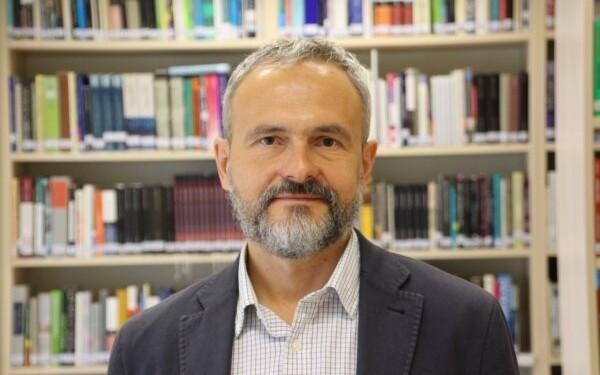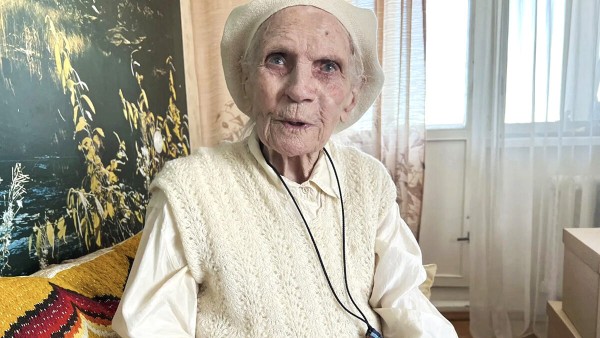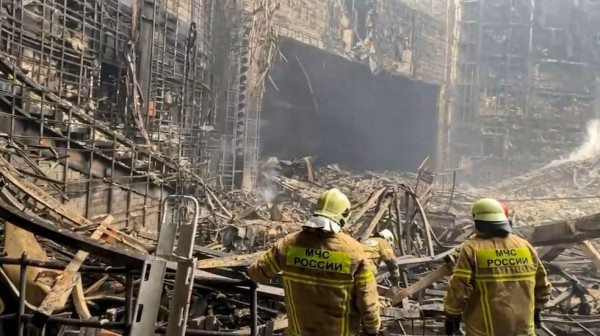https://www.washingtonpost.com...
Opinion by
Vladimir Kara-Murza
Global Opinions contributor
You can tell the ruling party is in trouble when one of its candidates loses to his own office cleaner during municipal elections. This is what happened in Russia’s Kostroma region earlier this fall, when a local mayor, a member of Vladimir Putin’s United Russia party, put his cleaner on the ballot to have an “opponent” to run against — just to have the the farce backfire when the mayor was defeated in a landslide.
“It doesn’t matter what your experience is,” noted former opposition lawmaker Dmitri Gudkov. “If you just don’t steal and talk to people, you will be head and shoulders above any member of United Russia.”
For years, Putin’s regime has maintained his party’s dominance over the legislature by traditional authoritarian methods: control over the media, administrative coercion, ballot-stuffing and, most important, disqualification of opposition candidates. It’s not difficult to win when your opponents are not on the ballot. Yet so high is public fatigue with the regime that Russians are finding imaginative ways to express it. When no real challenger is on the ballot, they vote for a spoiler — such as the cleaner in Kostroma — to send a message.
This first happened on a large scale during the 2018 gubernatorial elections in several Russian regions, and most spectacularly last year in Moscow, where Kremlin-backed candidates lost nearly half of their seats on the city council thanks, in large part, to tactical voting advocated by Putin’s leading opponent, the anticorruption activist Alexei Navalny. In this year’s local elections, candidates backed by Navalny scored impressive victories in Siberian cities.
A few dozen opposition lawmakers in municipal councils and even regional legislatures are a nuisance the Kremlin can live with, but even a single dissenting voice in the national parliament would present a challenge for a system that survives on the lack of an alternative. Just ask Ilya Ponomarev, the sole Russian lawmaker who voted against the annexation of Crimea in 2014 and was slapped with criminal prosecution and hounded out of the country in response. As next September’s parliamentary election draw closer, the regime is pulling all the stops to ensure that last year’s humiliation in Moscow is not repeated on a national scale.
This week, Putin’s party unveiled new legislative proposals allowing the authorities to label any opposition candidate as a “foreign agent.” The designation, which in Russian is synonymous with “foreign spy,” will be included on all signature petitions, campaign literature and on the ballot. To be labeled a “foreign agent,” a candidate just has to have been associated with a nongovernmental organization (NGO) or media organization designated by the Russian government as a “foreign agent,” or have accepted “any form of organizational or methodological support from foreign sources.” Participating in a seminar organized by an international NGO, for example, would qualify.
Any candidate backed by Navalny would be automatically affected as his NGO, the Anti-Corruption Foundation, is already designated by the government as a “foreign agent” (over a bogus money transfer from Spain almost certainly organized by the Russian authorities themselves.) “Why don’t they just designate anyone who criticizes the government and uses arguments aligned with Western liberalism as a ‘foreign agent’?”, wrote political analyst Tatiana Stanovaya. “In effect, this is a ban on the liberal opposition in Russia.”
The practical effect of the measure is unclear — indeed, it could well backfire on its authors. As Navalny quipped , the “foreign agent” label on the ballot would make it easier for Russian voters to pick out the anti-Putin candidate. What is clear is that the Kremlin is worried, so much so that it recently introduced another initiative that, in effect, revives the notion of “rotten boroughs” that existed in England prior to the electoral reform of 1832. These were small depopulated villages that, by virtue of outdated constituency maps, continued to have parliamentary representation that was easily manipulated by landowners.
Russia’s recent constitutional changes allow the authorities to create artificial quasi-regions with the ill-defined status of a “federal territory” and with their own representatives in parliament. The first such “territory” has been formed near the Black Sea resort of Sochi in southern Russia and, according to parliament’s legislative committee chairman Pavel Krasheninnikov, may get its own electoral district with its own member of parliament, all for a population of 12,500. To compare, the average electoral district in Russia numbers around a half-million voters. So even if the opposition manages to win in large cities next year, its voice would be diluted by pro-Kremlin lawmakers sent by a few thousand votes in “rotten boroughs.” Traditional gerrymandering (already used by the Kremlin in 2016) pales in comparison.
“The regime is fighting the manifestations, not the cause [of rising discontent],” says Lyubov Sobol, a lawyer at the Anti-Corruption Foundation who is running for parliament in central Moscow (and who will certainly be labeled a “foreign agent”). “We know how the Soviet Union ended — because it had no opposition, no legal political sphere, no independent media or democratic institutions,” echoes 2021 parliamentary candidate Kirill Goncharov of the liberal Yabloko party.
The growing public fatigue with a corrupt and abusive regime won’t disappear because of new bans, restrictions or vote-rigging. If society is unable to express its opposition through the ballot box, it will find another way.
Putin’s latest election dirty tactic: Label the opposition as ‘foreign agents’ (2)
Eestlased Venemaal | 23 Nov 2020 | EWR
Viimased kommentaarid
Kommentaarid on kirjutatud EWR lugejate poolt. Nende sisu ei pruugi ühtida EWR toimetuse seisukohtadega.
Appi,
minu tutvusringkond pole halal,
osa hääletasid "neo-fascist political party" poolt.
Kindlasti madaldatakse sotsiaalne krediit seetõttu punaseks. Nii me küll helgesse globalismi ei jõua....;=)
minu tutvusringkond pole halal,
osa hääletasid "neo-fascist political party" poolt.
Kindlasti madaldatakse sotsiaalne krediit seetõttu punaseks. Nii me küll helgesse globalismi ei jõua....;=)
Eestlased Venemaal
TRENDING

























